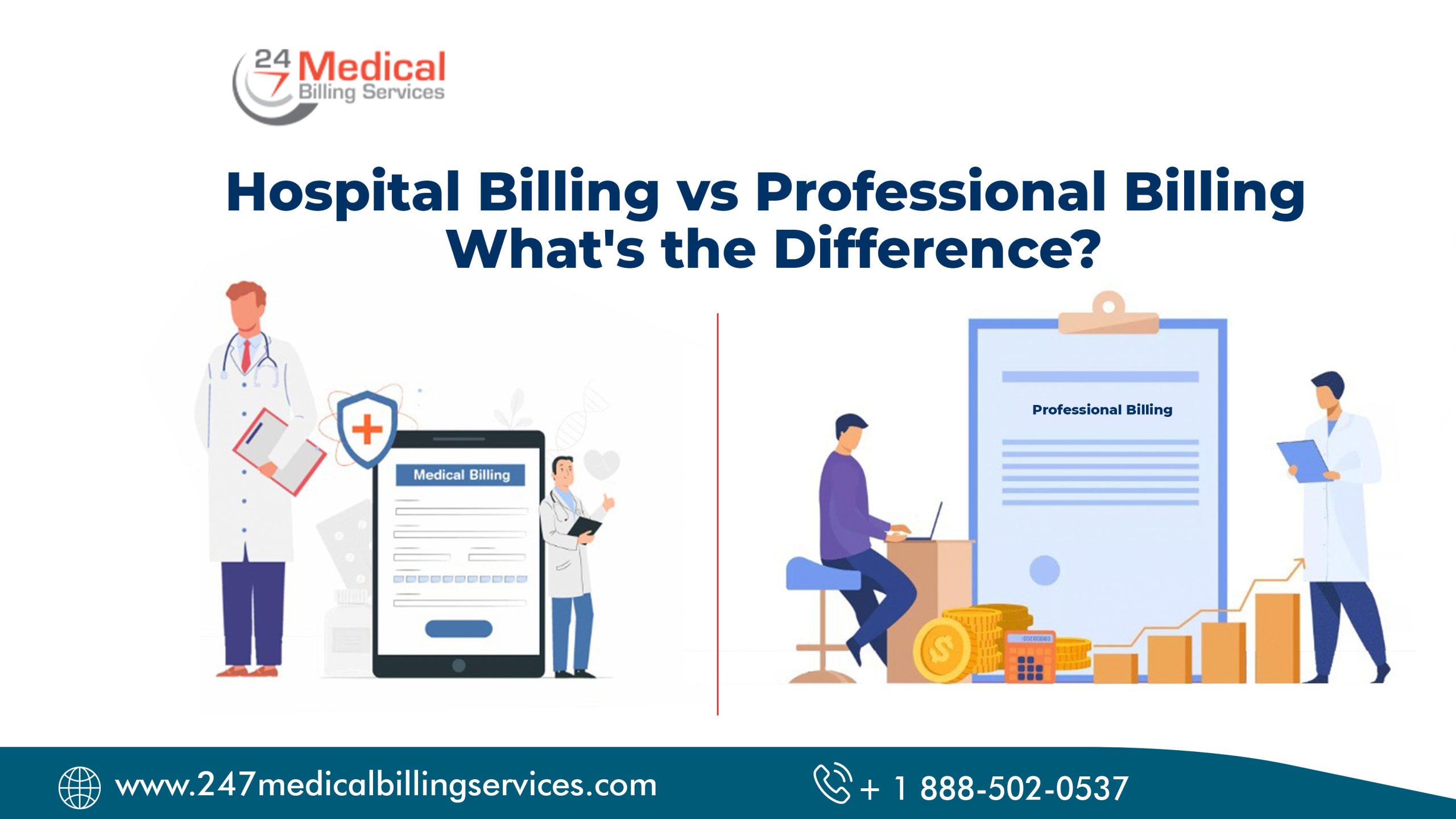Hospital Billing vs Professional Billing: What’s the Difference?
Billing in the healthcare industry encompasses various complexities, and understanding the differences between hospital billing and professional billing is essential for healthcare providers to optimize their revenue cycle management. Both billing types have distinct characteristics, requirements, and processes that impact reimbursement and operational efficiency. In this article, we will explore the key differences between hospital billing Vs professional billing, shedding light on each aspect. If you’re looking for expert assistance in navigating these complexities, 24/7 Medical Billing Services is here to help.
Understanding Hospital Billing and Professional Billing:
Hospital Billing:
Hospital billing refers to the billing process associated with services rendered in a hospital setting. This includes inpatient stays, outpatient procedures, emergency room visits, surgeries, and other medical treatments provided within the hospital premises. Key aspects of hospital billing include:
Facility Fee: Hospitals charge a facility fee for providing comprehensive services, including medical equipment, nursing care, and administrative overhead.
UB-04 Claim Form: Hospitals utilize the UB-04 claim form for billing, which includes detailed information about the patient’s stay, procedures performed, medications administered, and other relevant details.
Diagnosis-Related Groups (DRGs): Hospital billing employs a payment system based on Diagnosis-Related Groups, where patients with similar diagnoses are grouped together for reimbursement purposes.
Professional Billing:
Professional billing, also known as physician billing, refers to the billing process associated with services provided by individual healthcare providers, such as physicians, surgeons, specialists, and other non-hospital-based practitioners. Key aspects of professional billing include:
Evaluation and Management (E/M) Codes: Professional billing utilizes E/M codes to determine the level of service provided during patient visits, taking into account factors like complexity, time spent, and medical decision-making.
CMS-1500 Claim Form: Professional billing utilizes the CMS-1500 claim form, which includes information about the patient, provider, services rendered, diagnosis codes, and procedure codes.
Fee Schedule: Professional billing often follows a fee schedule, which outlines the predetermined rates for specific services provided by the healthcare provider.
Differences between Hospital Billing and Professional Billing:
Setting: The primary difference lies in the setting where the services are provided. Hospital billing is associated with services rendered within a hospital facility, while professional billing is associated with services provided by individual healthcare providers outside of the hospital setting.
Claim Forms: Hospital billing utilizes the UB-04 claim form, whereas professional billing utilizes the CMS-1500 claim form.
Fee Structure: Hospital billing includes facility fees in addition to charges for specific services, while professional billing typically follows a fee schedule or charges based on specific procedures or services rendered.
Coding Systems: Hospital billing primarily uses Diagnosis-Related Groups (DRGs) for reimbursement, whereas professional billing relies on various coding systems, including E/M codes, CPT codes, and ICD-10 codes.
Conclusion:
Understanding the differences between hospital billing and professional billing is crucial for healthcare providers to effectively manage their revenue cycle. By partnering with a knowledgeable billing service provider like 24/7 Medical Billing Services, you can navigate the complexities of both billing types with confidence. Streamline your billing processes, maximize reimbursement, and focus on providing quality care to your patients.



